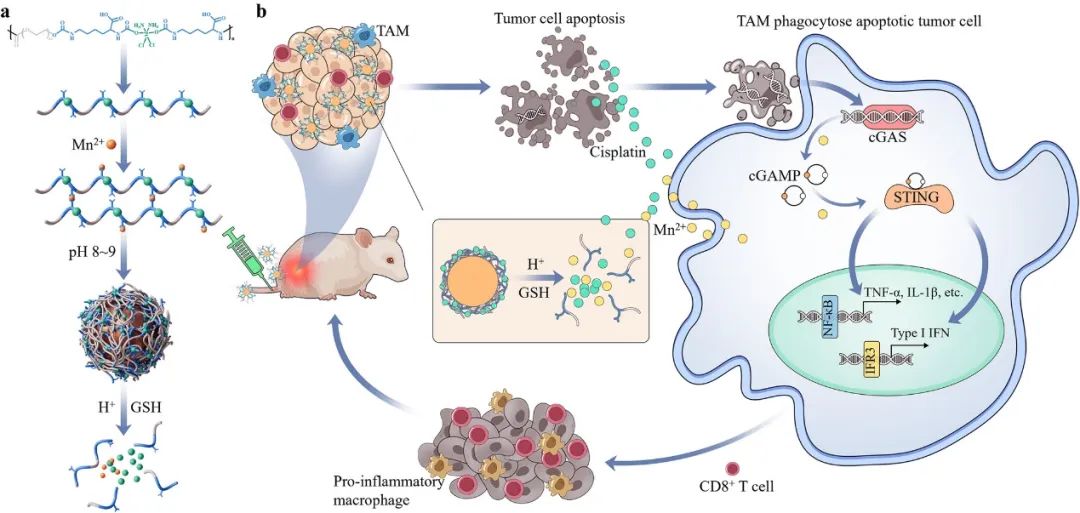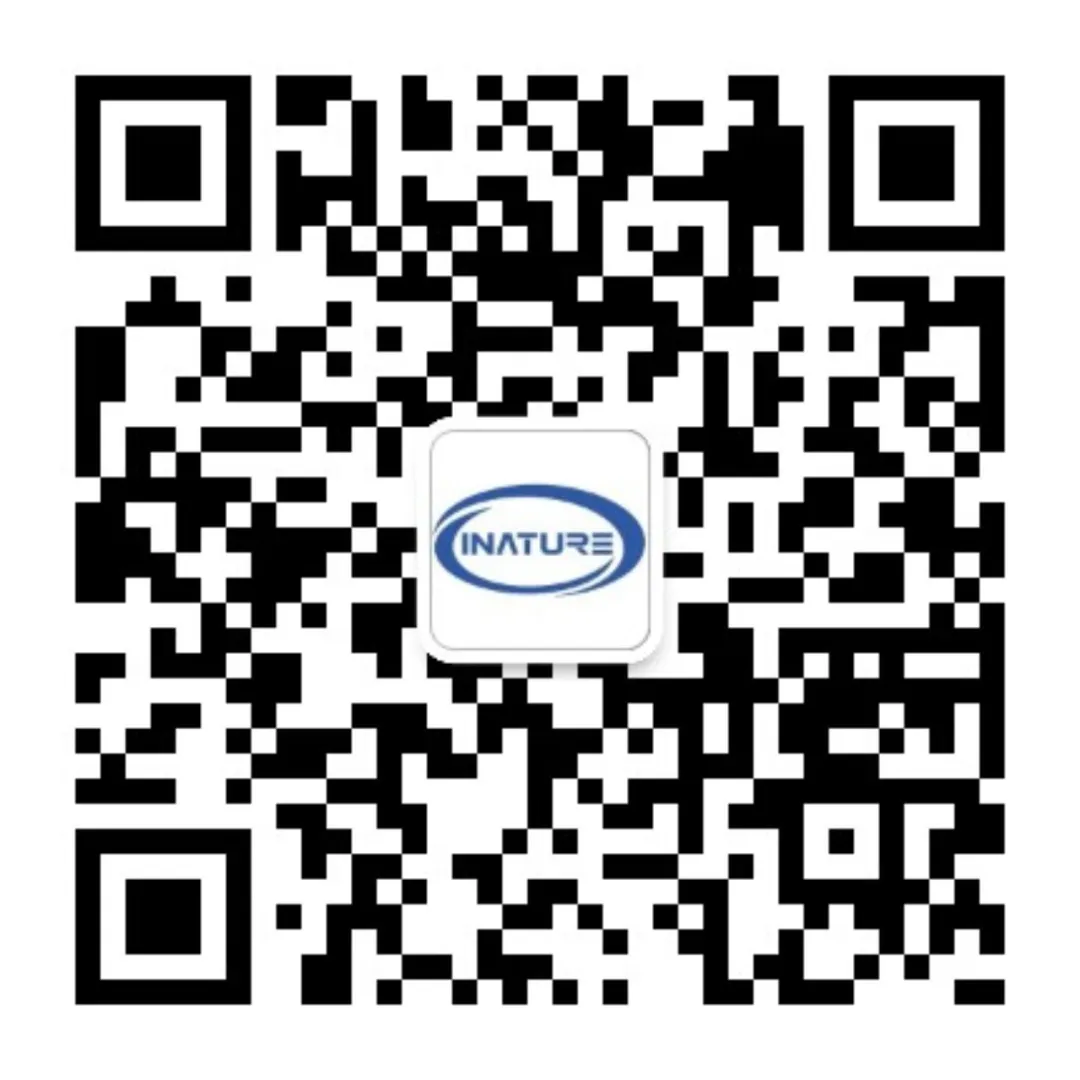iNature
The stimulator of interferon genes (STING) pathway shows great potential in reshaping the immunosuppressive tumor microenvironment and initiating anti-tumor immunity. However, effectively activating STING while avoiding toxic side effects from systemic administration remains challenging.
On January 7, 2025, a communication from Li Weimin’s team at Sichuan University was published online in ACS Nano titled “Platinum(IV)-Backboned Polymer Prodrug-Functionalized Manganese Oxide Nanoparticles for Enhanced Lung Cancer Chemoimmunotherapy via Amplifying Stimulator of Interferon Genes Activation” The study developed pH/redox dual-responsive platinum (IV) backbone polymer prodrug-coated manganese oxide nanoparticles (DHP/MnO2NP), which can precisely release cisplatin and Mn2+ to synergistically amplify STING activation.
In in vitro experiments, the authors demonstrated that DHP/MnO2NP effectively induced DNA damage in tumor cells and penetrated the cytoplasm, synergistically promoting STING activation and upregulating the expression of pro-inflammatory cytokines in conjunction with Mn2+. Furthermore, DHP/MnO2NP can selectively release cisplatin and Mn2+ to mediate tumor killing while reducing toxicity to normal cells. In vivo studies showed that DHP/MnO2NP enhances therapeutic efficacy by activating STING and initiating robust anti-tumor immunity. Specifically, DHP/MnO2NP skewed tumor-associated macrophages towards a pro-inflammatory phenotype, with pro-inflammatory cytokine expression in tumors upregulated by as much as 99 times compared to the control group, and significant increases in CD8+ T cell infiltration. When STING signaling was blocked, the anti-tumor effects and immune-stimulating effects of DHP/MnO2NP were significantly inhibited. Additionally, DHP/MnO2NP has advantages in enhancing tumor homing and retention, resulting in stronger and more durable anti-cancer effects. Overall, DHP/MnO2NP provides a platform for enhancing cancer chemo/immunotherapy and holds promise for achieving precision treatment.



—END—
The content is original from 【iNature】,
Please specify the source as 【iNature】
Add WeChat Group
iNature gathers 40,000 researchers and doctors in life sciences. We have formed 80 comprehensive groups (16 PI groups and 64 PhD groups), and also established specialized groups in related fields (plants, immunology, cells, microbiology, gene editing, neuroscience, chemistry, physics, cardiovascular, oncology, etc.).Note: Please leave a note when joining the group (format: university + major + name, if you are a PI/professor, please indicate as PI/Professor, otherwise, it will be assumed you are a PhD student, thank you).You can first add the editor’s WeChat ID (love_iNature), or long-press the QR code to add the editor, and then join the relevant group. Serious inquiries only.


For submission, cooperation, and reprint authorization matters
Please contact WeChat ID:13701829856 or email:[email protected]
If you find this article interesting, please click here!